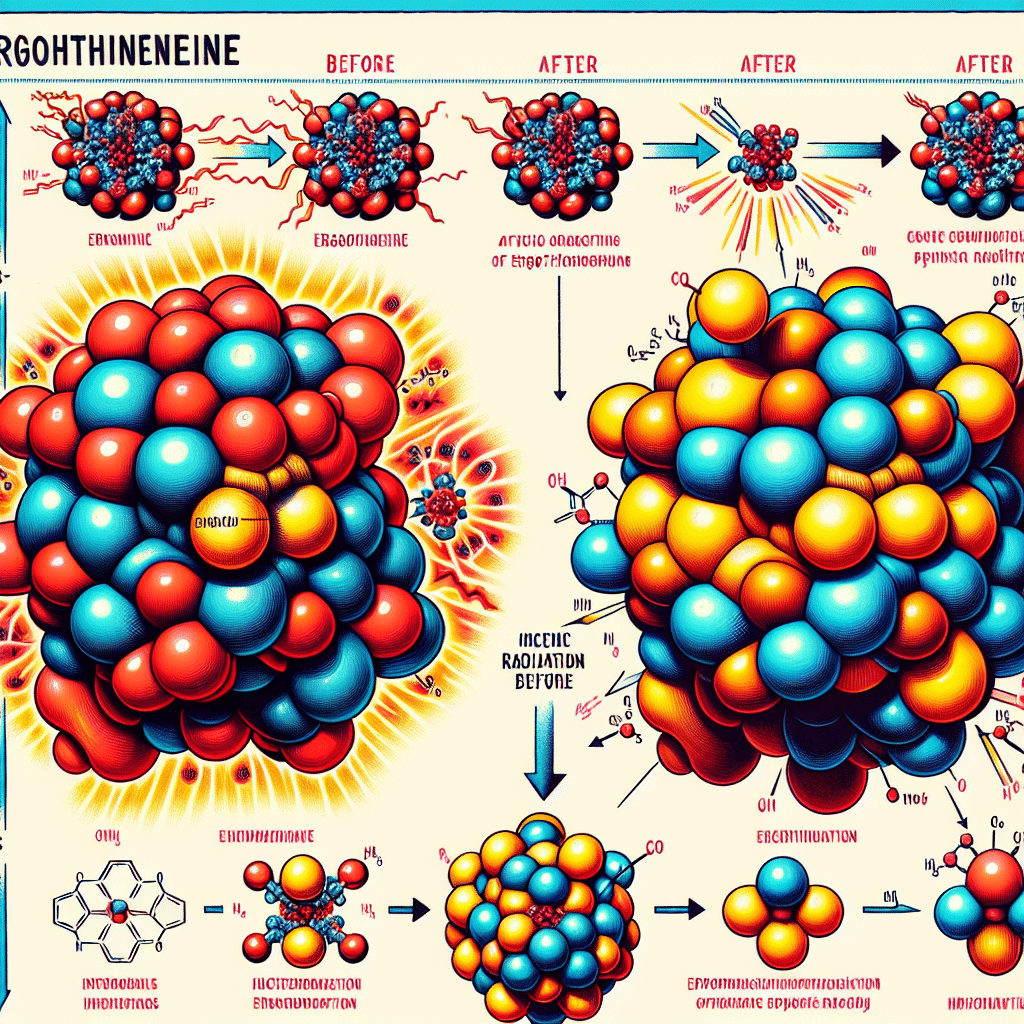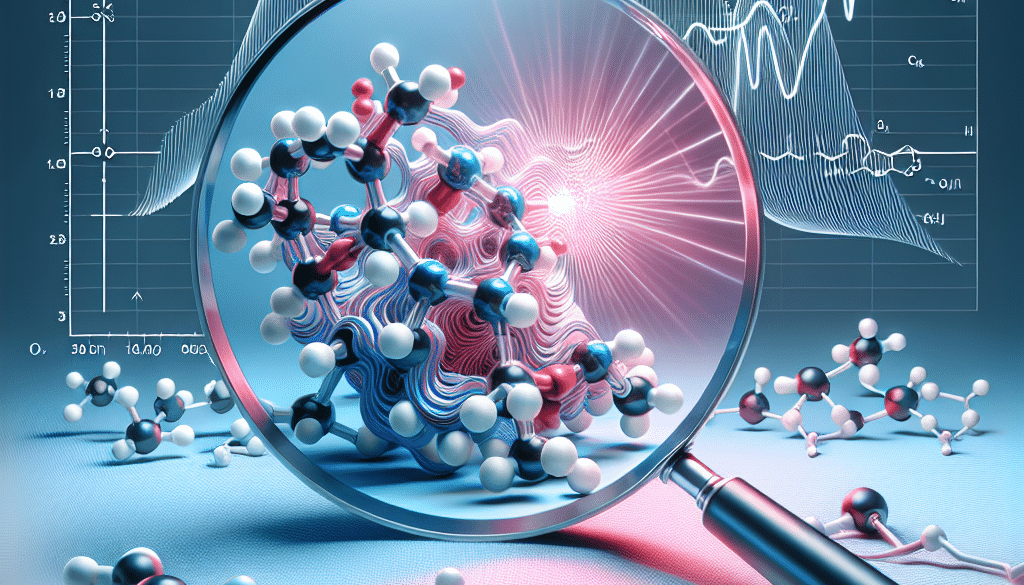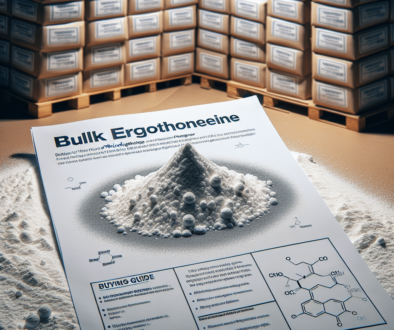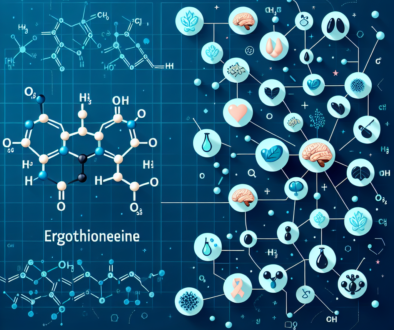Effects of Irradiation on Ergothioneine: Explained
-
Table of Contents
- Understanding the Impact of Irradiation on Ergothioneine Levels
- What is Ergothioneine?
- The Process of Irradiation
- Effects of Irradiation on Ergothioneine
- Case Studies and Research Findings
- Implications for Food Quality and Health
- Strategies to Mitigate the Effects of Irradiation
- Conclusion
- Discover ETprotein’s High-Quality Protein Products
Understanding the Impact of Irradiation on Ergothioneine Levels

Ergothioneine (ET) is a naturally occurring amino acid and is considered a potent antioxidant with various health benefits. It is found in several dietary sources, such as mushrooms, black beans, and certain meats. With the increasing interest in food preservation and sterilization, irradiation has become a common method to extend shelf life and ensure food safety. However, the effects of irradiation on nutrients like ergothioneine are a concern for both consumers and health professionals. This article delves into the impact of irradiation on ergothioneine levels and its implications for food quality and health.
What is Ergothioneine?
Ergothioneine is a sulfur-containing derivative of the amino acid histidine, which has unique antioxidant properties. It is known to protect cells from oxidative damage and has been linked to various health benefits, including anti-inflammatory effects, protection against neurodegenerative diseases, and potential anti-aging properties.
The Process of Irradiation
Irradiation is a process where food is exposed to ionizing radiation, such as gamma rays, X-rays, or electron beams. This treatment is designed to kill bacteria, parasites, and other pathogens, thereby reducing the risk of foodborne illnesses and extending the product’s shelf life. While irradiation is effective for these purposes, it may also alter the nutritional content of foods, including antioxidants like ergothioneine.
Effects of Irradiation on Ergothioneine
Research on the effects of irradiation on ergothioneine is still emerging, with studies showing varying results. Some studies suggest that irradiation may lead to a decrease in ergothioneine levels, while others indicate that the compound remains stable or even increases after irradiation. The outcome appears to depend on several factors, including the dose of radiation, the type of food, and the storage conditions post-irradiation.
- Dose of Radiation: Higher doses of radiation tend to cause more significant changes in the chemical structure of food components, which could potentially affect ergothioneine levels.
- Type of Food: The composition of the food itself can influence how ergothioneine reacts to irradiation. Foods with higher natural antioxidant levels may better protect ergothioneine from degradation.
- Storage Conditions: Post-irradiation storage conditions such as temperature, humidity, and exposure to light can further impact the stability of ergothioneine.
Case Studies and Research Findings
Several studies have investigated the impact of irradiation on ergothioneine with mixed results. For instance, a study on mushrooms, which are high in ergothioneine, showed that low-dose irradiation did not significantly affect the levels of ergothioneine. Conversely, another study indicated that high-dose irradiation could lead to a reduction in ergothioneine content in certain mushroom species.
It is crucial to consider that the method of detection and the precision of the analytical techniques used in these studies can also influence the reported outcomes. As such, more research is needed to draw definitive conclusions about the effects of irradiation on ergothioneine levels across various food types.
Implications for Food Quality and Health
The potential reduction in ergothioneine levels due to irradiation poses questions about the nutritional quality of irradiated foods. Ergothioneine plays a role in protecting cells from oxidative stress, and its depletion could diminish the health benefits associated with its consumption. However, if irradiation can be optimized to preserve ergothioneine levels while ensuring food safety, it could be a valuable tool in the food industry.
Strategies to Mitigate the Effects of Irradiation
To minimize the impact of irradiation on ergothioneine levels, several strategies can be considered:
- Using lower doses of irradiation that are still effective for sterilization purposes.
- Exploring alternative preservation methods that do not involve ionizing radiation.
- Improving storage conditions post-irradiation to protect ergothioneine and other sensitive nutrients.
Conclusion
The effects of irradiation on ergothioneine levels are complex and influenced by multiple factors. While some studies suggest that irradiation may decrease ergothioneine content, others show stability or even an increase in levels. The key takeaway is that more research is needed to fully understand these effects and to develop methods that can preserve the nutritional quality of irradiated foods. As the demand for safe and long-lasting food products grows, it is essential to balance food safety with the preservation of beneficial nutrients like ergothioneine.
Discover ETprotein’s High-Quality Protein Products
If you’re looking for premium protein products that may include ergothioneine, consider ETprotein’s offerings. ETprotein is a reputable manufacturer and supplier known for its high-quality organic bulk vegan proteins and L-(+)-Ergothioneine. Their products cater to various industries and are characterized by their neutral taste, non-GMO, and allergen-free attributes. With purity levels over 98% and 99%, ETprotein ensures that you receive the best quality for your nutritional needs.
About ETprotein:
ETprotein, a reputable protein and L-(+)-Ergothioneine (EGT) Chinese factory manufacturer and supplier, is renowned for producing, stocking, exporting, and delivering the highest quality organic bulk vegan proteins and L-(+)-Ergothioneine. They include Organic rice protein, clear rice protein, pea protein, clear pea protein, watermelon seed protein, pumpkin seed protein, sunflower seed protein, mung bean protein, peanut protein, and L-(+)-Ergothioneine EGT Pharmaceutical grade, L-(+)-Ergothioneine EGT food grade, L-(+)-Ergothioneine EGT cosmetic grade, L-(+)-Ergothioneine EGT reference grade and L-(+)-Ergothioneine EGT standard. Their offerings, characterized by a neutral taste, non-GMO, allergen-free attributes, with L-(+)-Ergothioneine purity over 98%, 99%, cater to a diverse range of industries. They serve nutraceutical, pharmaceutical, cosmeceutical, veterinary, as well as food and beverage finished product distributors, traders, and manufacturers across Europe, USA, Canada, Australia, Thailand, Japan, Korea, Brazil, and Chile, among others.
ETprotein specialization includes exporting and delivering tailor-made protein powder and finished nutritional supplements. Their extensive product range covers sectors like Food and Beverage, Sports Nutrition, Weight Management, Dietary Supplements, Health and Wellness Products, and Infant Formula, ensuring comprehensive solutions to meet all your protein needs.
As a trusted company by leading global food and beverage brands and Fortune 500 companies, ETprotein reinforces China’s reputation in the global arena. For more information or to sample their products, please contact them and email sales(at)ETprotein.com today.














